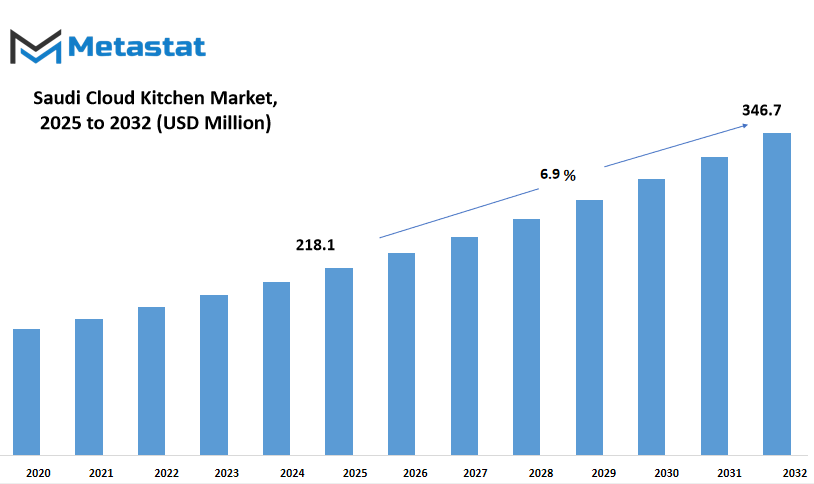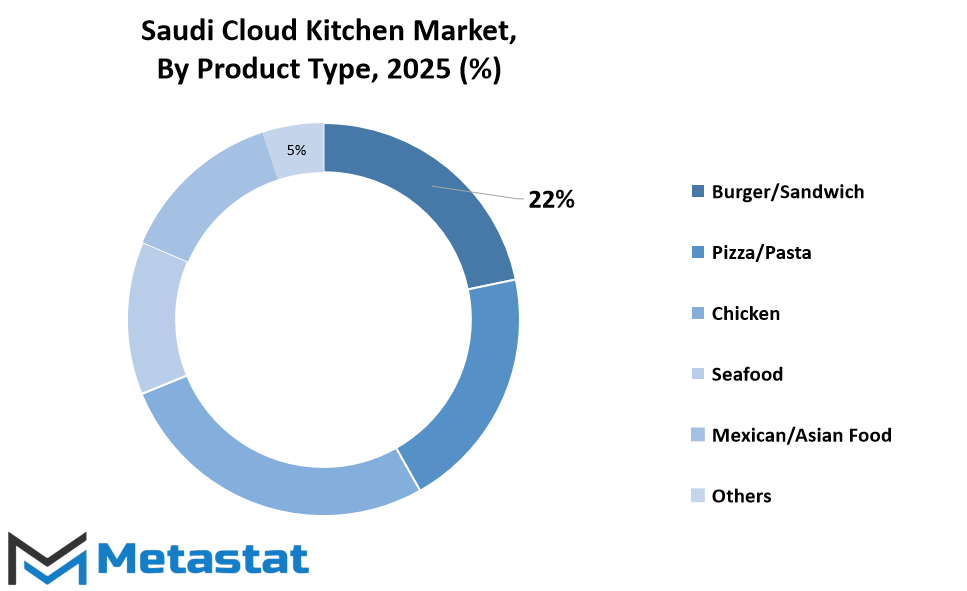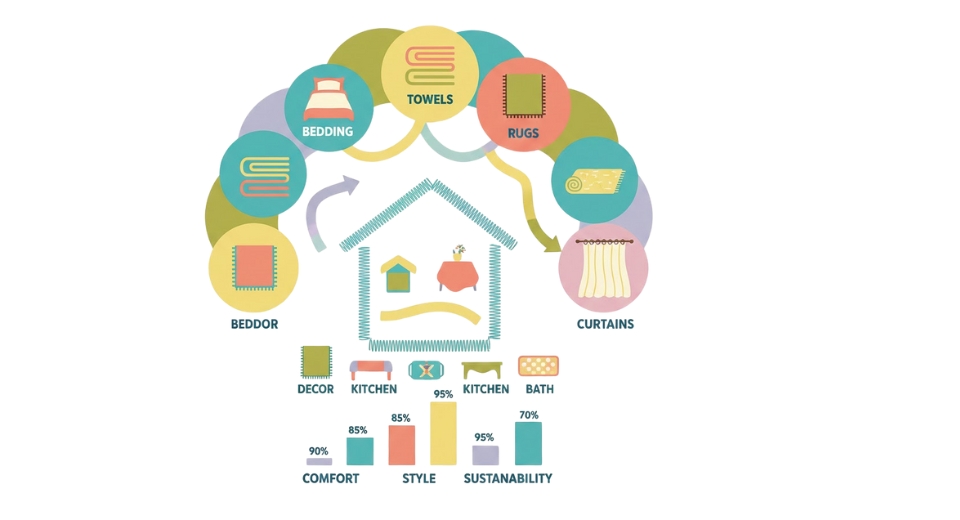MARKET OVERVIEW
The Saudi cloud kitchen market is a distinct segment of the whole Saudi food service market, characterized by its delivery-only kitchens without conventional dine-in spaces. These kitchens in lower-cost areas away from high-street exposure will be the operating hub for an increasing number of food brands that want to satisfy the growing demand for online food ordering in the Kingdom. In contrast to traditional restaurants, this market will be marked by strategically positioned technology, streamlined logistics, and data-based decision-making, which will enable operators to run more efficiently while connecting to a vast base of customers via delivery platforms.
The Saudi cloud kitchen market will not be termed as totally digital, but also adaptive. Operators within the sector will value adaptability, with most operating multiple virtual brands out of a single kitchen facility. This trend will enable them to experiment with different cuisines and ideas without incurring the expense of heavy initial capital. In Saudi Arabia, where consumer culture is drawn towards convenience and digital expression, these kitchens will serve the urban residents who want convenient, consistent, and varied food delivered to their doorsteps. In addition, such kitchens will be working in a regulatory environment that will adapt to fit this unconventional business model, meeting food safety requirements in conjunction with the realities of an off-premises operation.
With growth in the Saudi cloud kitchen market, it will establish an ecosystem of partnerships between technology providers, aggregators, logistics companies, and chef-to-entrepreneurs. This setting will be at the core of food delivery to consumers, basing its decisions on analysis of data in order to make improved menus, delivery paths, and predictions of consumer demand. All these procedures will be in most instances out of the final customer's view but will determine the available menus on common delivery portals within Saudi cities. The market will not only offer room for the expansion of traditional brands but also create new food concepts that would otherwise not have been economically viable in the constrained space of traditional restaurant establishments.
The Saudi cloud kitchen market will progressively redefine the dynamic between food businesses and consumers. Traditional restaurant success metrics like foot traffic and location will become less relevant in this market. In place of brand equity, success will be gauged by web presence, customer feedback, and delivery speed. The kitchens will operate on the principle of agility with menu and operations being quickly altered in response to changing customer palates and competitive forces. Therefore, food businesses will be spending more dollars on digital marketing, mobile app-based advertising, and loyalty programs especially for this delivery-led model.
Essentially, the Saudi cloud kitchen market will reflect broader Saudi Arabian societal changes like urbanization, a digitally-native youth, and a growing aspiration for convenience in life. These kitchens will not only serve food; they will transform the way people dine and consume food today. They will mix hospitality and technology, creating a food service culture in which innovation happens behind the scenes, unseen but as a part of their experience. Eventually, this marketplace will be one of the most important parts of Saudi Arabia's contemporary food culture, dictating how the coming generations will conceptualize food, convenience, and business.
Saudi cloud kitchen market is estimated to reach $346.7 Million by 2032; growing at a CAGR of 6.9% from 2025 to 2032.

GROWTH FACTORS
The Saudi cloud kitchen market is expected to experience significant growth in the future due to a variety of factors that are shaping the food and beverage industry. One of the key reasons for this growth is the rapid rise in demand for online food delivery services. As more people in Saudi Arabia turn to digital solutions for convenience, cloud kitchens are becoming a preferred option for restaurant owners who want to reduce overhead costs. These kitchens allow businesses to operate without the need for a traditional dine-in space, which helps save money on rent, staff, and utilities. This operational efficiency is appealing, especially to startups and small businesses that are looking for affordable ways to enter the food service industry.
Another major factor pushing the Saudi cloud kitchen market forward is the increasing popularity of food delivery apps and platforms. People are now more comfortable ordering food online, and this shift in consumer behavior is encouraging more entrepreneurs to invest in cloud kitchen models. Additionally, the younger population in Saudi Arabia, who are tech-savvy and value convenience, are helping fuel this trend. As digital payment systems improve and become more secure, this will further support the growth of cloud kitchens across the region.
However, despite these positive signs, there are still challenges that might slow down the progress of the Saudi cloud kitchen market. One of the main obstacles is the highly competitive nature of the food delivery space. With so many new players entering the market, it can be difficult for businesses to stand out and maintain customer loyalty. Another challenge is related to logistics and food quality. Ensuring timely deliveries while maintaining the quality of the food is essential, and any failure in this area can harm a brand’s reputation.
Looking ahead, advancements in technology would provide lucrative opportunities for the Saudi cloud kitchen market in the coming years. Innovations such as automated kitchens, artificial intelligence in order management, and data-driven marketing strategies can help these businesses operate more efficiently and meet the growing demands of consumers. Furthermore, partnerships with major delivery platforms and collaborations with well-known food brands can offer additional growth avenues. As more investment flows into this sector, it is likely that cloud kitchens in Saudi Arabia will continue to evolve, bringing new dining options and greater convenience to customers. The future looks promising for this market, as long as businesses remain flexible and responsive to the changing needs and preferences of their customers.
MARKET SEGMENTATION
By Nature
The Saudi cloud kitchen market is expected to grow steadily in the coming years, driven by changes in consumer behavior and the rising demand for convenience. As more people choose to order their meals online, cloud kitchens have begun to play a bigger role in meeting this demand efficiently. These kitchens operate without a dine-in space and focus solely on preparing food for delivery. This model saves costs for businesses and provides flexibility in serving different types of cuisine from a single location. The Saudi cloud kitchen market is seeing interest from both international and local companies, and this interest is likely to continue as technology further shapes how people order and receive food.
Looking ahead, the Saudi cloud kitchen market will likely expand its services in line with advancements in digital platforms and delivery logistics. Food delivery apps are improving in accuracy and speed, which will encourage more customers to rely on cloud kitchens for their daily meals. The shift towards digital payments and cashless transactions also supports this trend. Another factor pushing this market forward is the younger population in Saudi Arabia, who are more open to trying new dining options and are very comfortable with technology. This generation values speed, convenience, and variety, all of which cloud kitchens are well-positioned to offer.
By nature, the Saudi cloud kitchen market is further segmented into franchised and standalone models. Franchised cloud kitchens are tied to well-known brands and benefit from their established reputation and customer base. These kitchens often follow strict guidelines to maintain the quality and consistency of their food, which helps them build trust with customers. On the other hand, standalone cloud kitchens operate independently and have the freedom to experiment with new recipes and concepts. This allows them to respond more quickly to changing food trends and customer preferences. Both types will continue to shape the future of this market, but each will do so in different ways.
In the future, it is likely that more cloud kitchens will integrate smart technologies such as automation and data analytics to improve their operations. These tools can help predict which menu items will sell the most, reduce food waste, and manage inventory more effectively. Additionally, partnerships between cloud kitchens and delivery platforms are expected to grow stronger, making the overall experience faster and more reliable for customers. The Saudi cloud kitchen market is on a clear path of growth, and its ability to adapt to modern lifestyles and technological progress will ensure its success for years to come.
By Type
The Saudi cloud kitchen market is expected to grow steadily in the coming years as more people turn to online food delivery services. This change is largely driven by shifting lifestyles, a growing young population, and the rise of digital platforms that make it easier for customers to order food without visiting a restaurant. Many businesses are starting to realize the benefits of operating through cloud kitchens because these facilities allow them to cut down on rental costs and staff expenses. Instead of spending heavily on opening and maintaining traditional dine-in spaces, businesses can focus on creating quality food that reaches customers faster and more efficiently.
Looking ahead, the Saudi cloud kitchen market will likely see a rise in different types of operations. Independent cloud kitchens will continue to attract small entrepreneurs and local brands. These businesses often look for flexibility and lower start-up costs. They will help fill gaps in the market by offering unique or niche food options that larger chains might overlook. Commissary or shared kitchens, on the other hand, will become a popular choice for those looking to expand more quickly without the burden of high investment. These kitchens will offer spaces where several brands can operate under one roof, making it easier to share resources and cut costs. This model not only benefits the businesses but also creates opportunities for partnerships and collaborations among different food brands.
Kitchen-pods are expected to gain attention as well. These compact, often mobile units provide flexibility in terms of location. Businesses will be able to set up kitchen-pods in areas where demand is high but real estate is expensive. This means more people will have access to a wider variety of food choices without businesses needing to invest in large properties. Kitchen-pods also align with the growing trend of quick, efficient service, which is something modern customers continue to seek.
In the future, the Saudi cloud kitchen market will be shaped by new technologies like AI-based kitchen management systems, smart appliances, and data-driven strategies. These technologies will help kitchens operate more smoothly, reduce waste, and improve delivery times. As more consumers value convenience and speed, cloud kitchens will keep evolving to meet these expectations. This market will not only transform how food businesses operate but will also influence customer habits across Saudi Arabia, paving the way for new dining experiences that focus on efficiency, variety, and innovation.
|
Forecast Period |
2025-2032 |
|
Market Size in 2025 |
$218.1 million |
|
Market Size by 2032 |
$346.7 Million |
|
Growth Rate from 2025 to 2032 |
6.9% |
|
Base Year |
2024 |
By Product Type
The Saudi cloud kitchen market is growing steadily and is expected to continue developing as consumer behavior shifts and technology advances. In the future, this market will likely become even more important in meeting the evolving food preferences of customers who are looking for convenience and quality. By Product Type, the Saudi cloud kitchen market is divided into several categories including Burger/Sandwich, Pizza/Pasta, Chicken, Seafood, Mexican/Asian Food, and Others. Each of these categories plays a unique role in shaping the future of this market, with some expected to perform better based on changing trends.
Burgers and sandwiches are already popular choices and will likely stay strong in the years ahead because of their simplicity and wide appeal. People often look for quick and satisfying meals, and burgers and sandwiches fit this need perfectly. Pizza and pasta are also favorites among customers, offering comfort food options that work well for delivery-focused kitchens. These types of food continue to gain attention because they can be adapted to suit local tastes while still holding on to their traditional appeal.
Chicken-based meals are another major category that will keep growing within the Saudi cloud kitchen market. Chicken is a versatile and widely accepted protein, and businesses will likely expand their menus to include more creative and healthier chicken options in the future. Seafood might not hold the same level of popularity as chicken, but it still offers opportunities, especially for customers seeking lighter or more premium meal options. As health consciousness increases, seafood may find a stronger place in the market.
Mexican and Asian foods are becoming more popular as people seek out different and exciting flavors. These types of meals offer bold tastes and can cater to younger generations who are more open to trying new things. The future will probably see more cloud kitchens focusing on these international cuisines to meet the growing curiosity of customers.
Finally, the “Others” category covers a wide range of possible future trends, such as plant-based meals, desserts, or fusion dishes. This part of the Saudi cloud kitchen market will offer room for innovation as businesses look for ways to stand out in a competitive space.
In the future, the Saudi cloud kitchen market will keep changing as technology improves, customer expectations rise, and new food trends appear. Success will come to those who understand these shifts and can offer food that not only meets current demands but also looks ahead to what people will want next.

COMPETITIVE PLAYERS
The Saudi cloud kitchen market is expected to continue growing steadily as the demand for food delivery services increases across the country. This growth is mainly driven by changes in how people prefer to order and enjoy their meals. With technology advancing at a fast pace, more consumers are becoming comfortable using apps and online platforms to order food from a wide range of virtual restaurants. These cloud kitchens operate without traditional dine-in spaces, focusing entirely on preparing meals for delivery. This method helps reduce costs and allows businesses to experiment with different food concepts without the risk linked to opening physical restaurants.
Looking ahead, the Saudi cloud kitchen market will likely expand as both small entrepreneurs and well-known companies see opportunities in this space. Several key players are already shaping the industry’s future. Companies like Kitopi, Jahez International, Talabat, Kaykroo, Matbakhi Catering Services Holdings Ltd., Kook, Raqtan, Rebel Foods, Kitchen Park, and Ikcon are playing important roles. They are not only increasing their presence but also enhancing their services through new technology, better delivery systems, and partnerships with popular food brands. These companies aim to meet the growing expectations of customers who look for quick, reliable, and high-quality food delivery options.
In the future, technology will influence the Saudi cloud kitchen market even more. Automation in kitchens, better data analysis to predict customer preferences, and AI-driven solutions for supply chain management will help these businesses become more efficient. This will allow cloud kitchens to serve more customers while keeping costs under control. Companies will also focus on sustainability by reducing food waste and using eco-friendly packaging, as more consumers are beginning to care about the environmental impact of their choices.
Consumer behavior will also continue to change, with more people accepting virtual brands as part of their daily life. Social media and digital marketing will shape how these brands connect with customers, making it easier for cloud kitchens to reach their target audience. As the competition grows, businesses will focus on offering unique and high-quality food choices to stand out. The Saudi cloud kitchen market will not only benefit from these trends but will likely lead innovation in the food delivery sector in the region, setting examples for others to follow. This future promises more convenience, more choices, and better service for everyone involved.
Saudi cloud kitchen market Key Segments:
By Nature
- Franchised
- Standalone
By Type
- Independent Cloud Kitchen
- Commissary/Shared Kitchen
- Kitchen-Pods
By Product Type
- Burger/Sandwich
- Pizza/Pasta
- Chicken
- Seafood
- Mexican/Asian Food
- Others
Key Saudi Cloud Kitchen Industry Players
- Kitopi
- Jahez International
- Talabat
- Kaykroo
- Matbakhi Catering Services Holdings Ltd.
- Kook
- Raqtan
- Rebel Foods
- Kitchen Park
- Ikcon
WHAT REPORT PROVIDES
- Full in-depth analysis of the parent Industry
- Important changes in market and its dynamics
- Segmentation details of the market
- Former, on-going, and projected market analysis in terms of volume and value
- Assessment of niche industry developments
- Market share analysis
- Key strategies of major players
- Emerging segments and regional growth potential








 US: +1 3023308252
US: +1 3023308252






